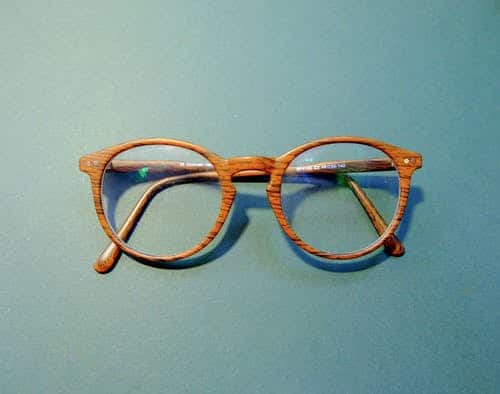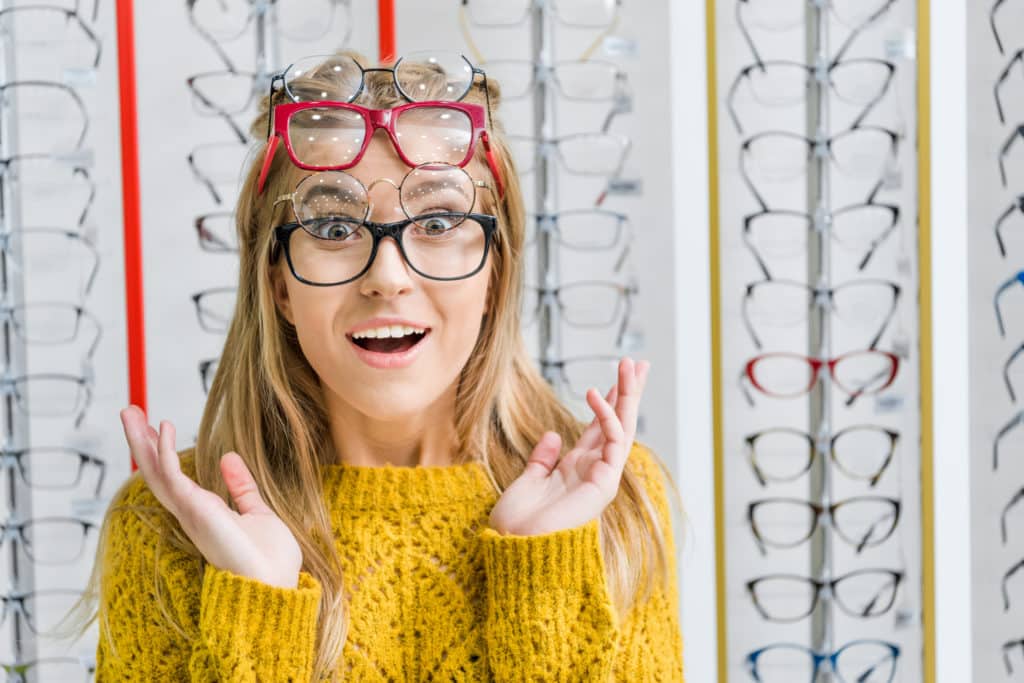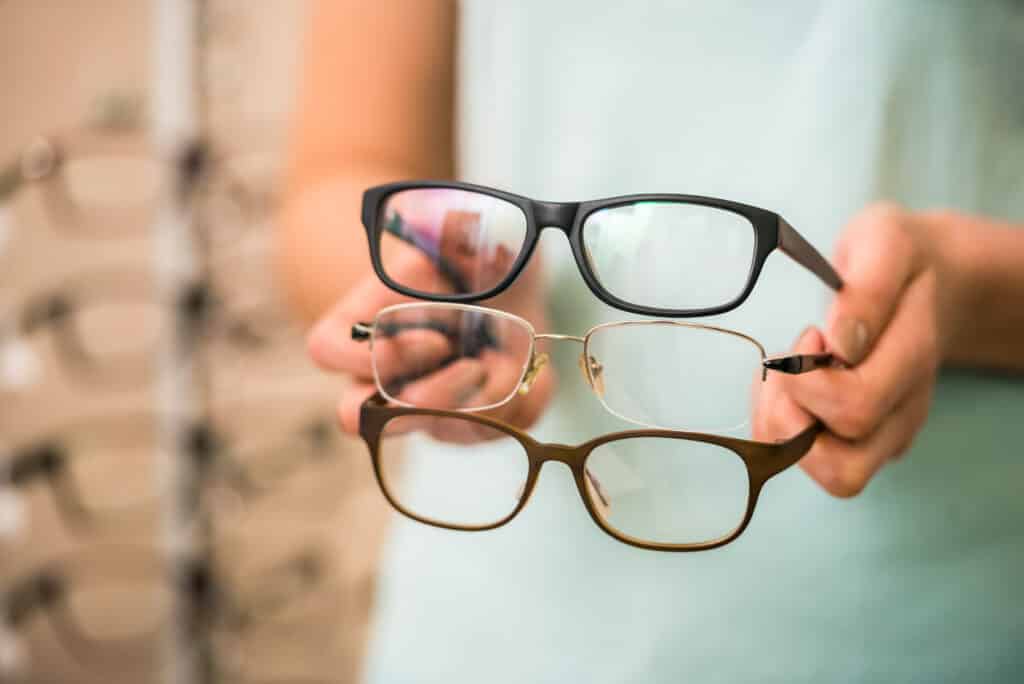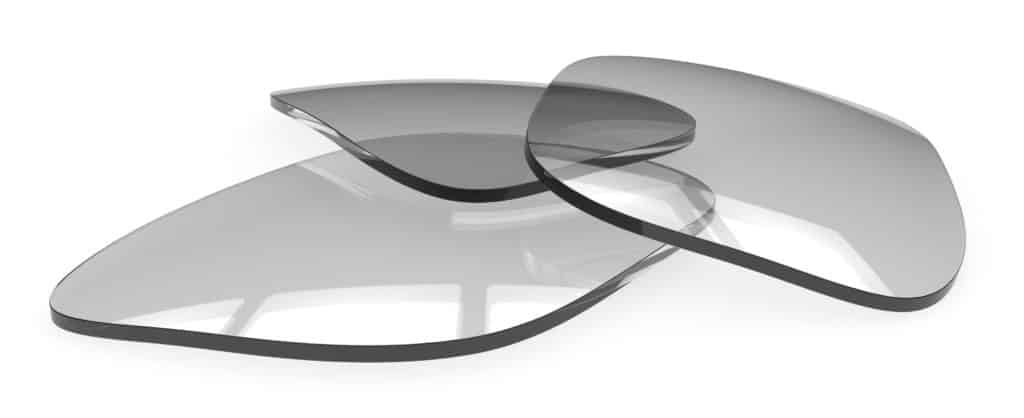
For those in the optical industry or who wear glasses, crazed or crazing is a term you have possibly heard before. But what are crazed lenses anyway? What do they look like and how can they be avoided? Crazing affects the appearance of lenses and sometimes can alter their function. Learn more about this phenomenon in this blog!
What Does Crazing Look Like?
Crazing looks like tiny cracks or fractures that can resemble spider webs on the surface of your lenses. Crazing doesn’t usually penetrate the entire lens, the cracks occur in the protective coating. Because of this, crazing shouldn’t affect the functionality of your glasses. However, small cracks can impact the clarity of your vision while wearing the crazed lenses.
What Causes Crazing To Occur?
Glasses can easily become damaged by several factors. Scratches, dents, damage to arms, bent frames, and other wear are all common when you use your glasses daily. Crazing is a consequence of a few different factors which are discussed below.
Age
After frequent use, glasses and lenses will experience wear and tear. As they age, your lenses are more prone to crazing or cracking. Exposure to multiple environmental factors (heat and moisture especially) can lead to crazing. Not all crazed lenses happen on older glasses. Crazing is still possible when other factors or damage to the protective coating occur.
Temperature Fluctuations
Extreme temperatures or rapid temperature changes can lead to crazed lenses. Temperature impacts the AR coating, causing it to expand and contract leading to cracks. If you want to avoid crazing on your lenses don’t leave your glasses in your car or out in direct sunlight.
Chemical Exposure
Certain chemicals can cause damage to your glasses. Household cleaners, hair creams, or any other abrasive chemical mixture will strip away the protective coating on your glasses. Once the coating of lenses has been weakened, they are more prone to crazing.
How Do I Prevent Crazed Lenses?

It may not always be possible to prevent damage to your glasses, but taking proper care of them can lower the risk of problems like crazed lenses.
The easiest way to protect your lenses is to store them and care for them properly. Storing them in a hard case when not in use will prevent them from getting scratched or broken. When glasses are stored in a proper place, they are less likely to be exposed to fluctuating temperatures and chemicals.
Cleaning your glasses with the proper solutions and tools will prevent crazed lenses. Using a microfiber cloth to remove build-up will lessen the likelihood of scratches. The right cleaning solution should be nonabrasive so as not to damage the protective coating.
Keep your glasses on your person or in your personal space at all times. Don’t let others touch or wear your glasses or leave them where children or pets can reach them. Taking good care of your glasses will prevent crazed lenses from occurring.
Will Crazed Lenses Impact My Vision?
Crazing occurs in the protective coating on your lenses, so it typically does not impact your vision while wearing your glasses. The small cracks and webbing can change the clarity of your lenses and reflect light. While this may not negatively impact your vision or worsen your vision, it can cause eye strain while wearing crazed lenses.
Are Crazed Lenses Covered Under Warranty?
Depending on where you get your lenses from, a warranty will vary. Crazing often occurs as a sign of wear and tear, which will not be covered under warranty for your glasses. When purchasing glasses, customers need to read through their warranties to understand what damages or accidents will be covered. Warranties will replace your glasses if an accident occurs within the warranty timeline. Crazing may not be covered under all warranties, so you may find yourself purchasing new lenses with your own money.
Lenses From Wolcott Optical

Wolcott Optical offers multiple types of lenses to consumers. Lenses are crucial for many who have vision impairments and should be treated with the utmost care. Wolcott offers far-sighted lenses, single-vision lenses, trifocal lenses, progressive lenses, and more! No matter what option you choose, our team can help you find the lenses and frames that will suit your needs.
We strive to combine a traditional and modern approach to eyewear. Helping people to improve their vision while combining fashionable eye frames and quality care is important to us here at Wolcott Optical. Our focus on customer service will never take a back seat to sales, you will have the best fit when you work with our experts.



